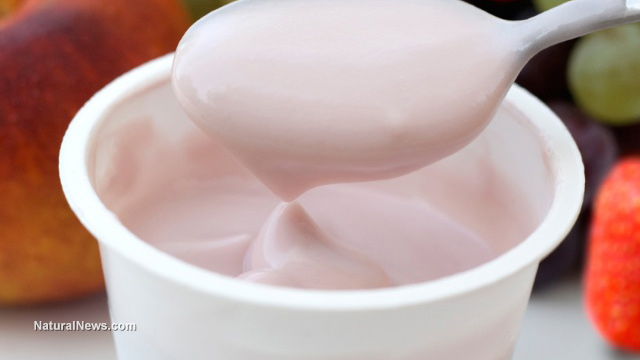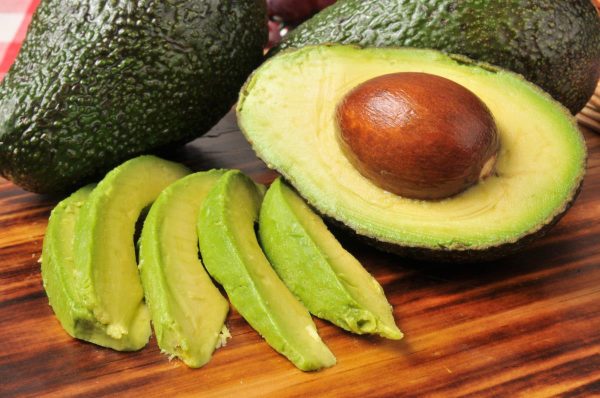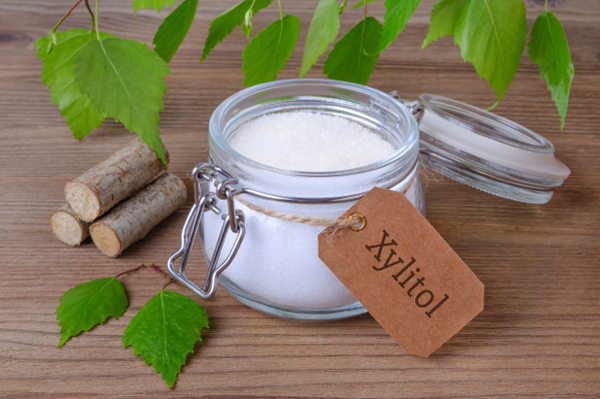Did you know that a healthy gut has been linked to a healthier life and you can choose natural foods or supplements to help you?
(Article republished from
GreenMedInfo.com)
If you are experiencing gastrointestinal problems, you are not alone. The National Institute of Diabetes and Digestive and Kidney Diseases estimates between 60 million and 70 million people in the U.S. suffer from a digestive disease.
[i]
Not only will your gut thank you for bringing back a healthier gut, but you may be helping your overall health by preventing other metabolic and inflammation-based diseases such as heart disease, diabetes,
skin disorders like eczema and psoriasis,
arthritis, cancers and even neurological problems.
The top natural gastrointestinal agents include yogurt, kefir/fermented foods, green tea, ginger, vitamin D, berberine, probiotics and prebiotics.
1. Yogurt
Yogurt is a nutrient-dense food that may help people with lactose intolerance, constipation and diarrheal diseases, high blood pressure,
cardiovascular diseases, diabetes and certain cancers.
[ii]
Emerging evidence suggests that eating yogurt might also improve the health of obese individuals by reducing chronic, low-grade inflammation caused by adipose tissue and an unhealthy gut. In the gut, obesity-associated dysregulation of microbiota and impaired gut barrier function may increase endotoxin exposure. Yogurt can enhance immune responses, intestinal barrier function, lipid profiles and regulate appetite.
[iii]
In two cohorts of 2,103 people in the United Kingdom, analysis of food consumption, clinical variables, metabolomics and genomic data showed that eating yogurt created a healthier diet pattern and improved metabolic health by reducing visceral fat.
Yogurt consumption also increased two yogurt-related bacteria in the gut -- Streptococcus thermophilus and Bifidobacterium (B.) lactis -- which helped activate 3 hydroxyoctanoic acid -- a known regulator of gut inflammation.
[iv]
2. Kefir and Fermented Foods
Kefir is a fermented drink made from yeast and lactic acid bacteria. It has been associated with various health benefits, including relieving
inflammatory bowel disease (IBD). In an induced-IBD mouse model. kefir-derived Lactobacillus extracellular vesicles resulted in significantly alleviated weight loss and rectal bleeding and improved stool consistency related to IBD.
[v]
In a review of research, kefir promoted an increase in the number of bifidobacteria in the colon and an increase in glycemic control while balancing blood cholesterol and intestinal microbiota. These actions reduced constipation and diarrhea, improved intestinal permeability and stimulated and balanced the immune system.
[vi]
Other fermented products are also gastrointestinal agents. For example, fermented ginseng can treat antibiotic-associated diarrhea symptoms and colon inflammation and restore the gut microbiota to its original state.
[vii] Fermented sea buckthorn liquid protected against
alcoholic liver disease and modulated the composition of gut microbiota.
[viii]
In mice studies, fermented rice bran significantly reduced the levels of blood glucose and lipids and elevated antioxidant activity in Type 2 diabetic mice, while also changing the composition of gut microbiota in short-chain-fatty-acids (SCFAs)-producing bacteria.
[ix]
3. Green Tea
Green tea can prevent or ameliorate
high blood pressure,
[x] elevated triglycerides and cholesterol[xi] and obesity
[xii] by regulating and altering the intestinal flora.
In a high-fat diet induced-obesity canine study, green tea exhibited beneficial effects on obesity and intestinal inflammation by decreasing expressions of inflammatory cytokines, including tumor necrosis factor alpha (TNF-α), interleukin (IL)-6, and IL-1β, and inhibiting induction of the toll-like receptor (TLR) 4 signaling pathway.
[xiii]
TLR4 initiates the innate immune response and is activated by bacterial endotoxins which cause chronic and acute inflammatory disorders.
[xiv] Green tea flowers have also been found to inhibit the growth and
metastasis of breast cancer into the lungs by modulating gut microbiota.
[xv]
4. Ginger
Ginger has a broad spectrum of clinical applications due to its anti-inflammatory and antioxidative functions.
[xvi] Inflammation and oxidative stress are key factors in gastrointestinal problems from IBD and constipation to diarrhea.
[xvii]
The anti-inflammatory activity of ginger makes it a strong inhibitor of the nuclear factor kappa B (NF-κB), signal transducer of activators of transcription (STATs), Nod-like receptor family proteins (NLRPs), TLRs, mitogen-activated protein kinase (MAPKs), mTOR pathways and various pro-inflammatory cytokines.
[xviii]
5. Vitamin D
Vitamin D deficiency has been linked with a variety of gastrointestinal disorders, including IBD,
diverticulitis, colorectal cancer and
irritable bowel syndrome (IBS).
[xix] Several studies have demonstrated that individuals with IBS and IBD are more likely to have a vitamin D deficiency than healthy controls.
[xx]
Vitamin D deficiency also impacts
autoimmune diseases such as
rheumatoid arthritis,
lupus[xxi] amyotrophic lateral sclerosis (ALS) and
Crohn's disease[xxii] by its effects on the intestinal barrier function, microbiome composition and immune responses.
[xxiii]
Due to the strong connection between vitamin D and microbiota, vitamin D supplementation impacts gut microbiota regulation, the immune system and psychosocial factors that can improve your gut health and remedy a variety of gastrointestinal conditions.
[xxiv]
Recent vitamin D supplementation studies have shown improvement in quality of life and reduction in IBS symptoms from abdominal pain, distention and flatulence to
constipation and visceral sensitivity.
[xxv]
6. Berberine
Berberine has been used in China for hundreds of years as a clinical anti-diarrhea and anti-inflammatory natural supplement due to its effects on gut microbiota.
[xxvi] In a systematic review of studies on berberine, 70% to 80% of patients with a gut functional disease characterized by
diarrhea were successfully treated with berberine-based products after 90 days.
[xxvii]
Ulcerative colitis (UC) is a major inflammatory bowel disease that displays an abnormally elevated level of lysozyme in the feces and blood -- a marker of
gastrointestinal inflammation. In a mouse study, results showed that berberine significantly inhibited the expression and secretion of lysozyme.
[xxviii]
Berberine treated UC effectively by suppressing the interferon gamma (IFN-γ) signaling pathway, which is crucial in immune-inflammatory responses of the colon mucosa in UC- induced mice and in vitro cell studies of UC patients.
[xxix]
7. Probiotics
In a meta-analysis of 17 studies including 1,700 patients with IBS, probiotics showed beneficial effects -- improved overall symptoms, alleviated abdominal pain/discomfort and relieved abdominal distention and defecation discomfort with fewer adverse reactions.
[xxx]
In a clinical study of 60 patients with moderate-to-severe UC, 30 were treated with an anti-inflammatory drug called mesalazine at a dose of 1,200 milligrams (mg) while the other 30 patients received mesalazine (same mg dose) and a probiotic blend of Lactobacillus salivarius, Lactobacillus acidophilus and a B. bifidus strain twice a day for a period of two years. All patients treated with both the probiotic and the anti-inflammatory had the most significant disease improvements. This combination was an effective alternative to corticosteroid treatment for moderate to severe UC.
[xxxi]
Gut microbiota is also an important contributor to the worldwide prevalence of
metabolic syndrome (MS), which includes obesity, high blood pressure, imbalanced cholesterol and
diabetes. The anti-MS effects exerted by probiotics B. animalis subspecies (ssp.) lactis (BlaG), and B. longum ssp. longum (BloJ) were compared.
BlaG treatment reduced visceral fat accumulation and improved glucose tolerance, while BloJ did not. BlaG exerted stronger effects on the overall bacterial structure of the gut microbiota than BloJ, including enrichment of the genus B. and increased levels of acetate, which accounted for superior BlaG-induced anti-MS effects.
[xxxii]
Probiotics Bifidobacteria, Lactobacilli and Saccharomyces strains are among the most widely used agents in gastrointestinal disorders, such as IBS, prevention of infectious diarrhea, IBD,
non alcoholic fatty liver disease and
colorectal cancer. The Lactobacilli strain, however, is the most clinically documented probiotic strain shown to prevent and relieve various types of diarrhea, improve many intestinal disorders as well as treat relapsing
Clostridium difficile colitis.
[xxxiii]
8. Prebiotics
Lycopene-rich foods such as tomatoes, guavas and watermelon, along with dark chocolate, are among the best-documented prebiotic products with broad health benefits. A study of 30 patients with moderate
obesity, who consumed lycopene and dark chocolate, showed positive impacts on their gut microbiota, blood, liver metabolism, skeletal muscle tissue oxygenation and skin.
[xxxiv]
Prebiotics with lycopene have also been shown to lower the risk for
prostate cancer,
[xxxv] cardiovascular disease
[xxxvi] and cancer mortality
[xxxvii] and increase bone health.
[xxxviii],[xxxix] Imbalance of intestinal microbiota has been linked to colitis. Probiotics (Bifidobacterium and Lactobacillus) and prebiotics (inulin) together reduced the degree of inflammation in acute colitis mice by increasing the proportion of helpful bacteria and regulating the balance of intestinal microbiota.
[xl]
In a clinical study, 146 subjects with
acute gastroenteritis receiving a prebiotic showed significant and sustained improvement of multiple symptoms such as stomach pain, discomfort, gas and
bloating compared to the placebo group.
[xli]
Age-related
cognitive impairment, such as learning and memory functions
, is associated with selective neuronal loss, oxidative changes that lead to microglia activation and neuroinflammation. In aging, there is an alteration in microbiota and gut microbiota diversity is perturbed with an increase in pathogenic bacteria at the expense of beneficial ones. Prebiotics and probiotics can return your gut to a more balanced state and improve age-related cognitive impairment.
[xlii]
Agents for a Healthy Gut
Your gut supports your body's functions and a healthy gut can prevent or help treat metabolic, autoimmune and inflammatory diseases. For more research related to the top natural agents for a healthy gut or balanced
microbiome, see GreenMedInfo.com's databases on
gastrointestinal agents,
yogurt,
kefir or
fermented foods and beverages,
green tea,
ginger,
vitamin D,
berberine,
probiotics and
prebiotics.
Read more at:
GreenMedInfo.com
 Parler
Parler Gab
Gab










